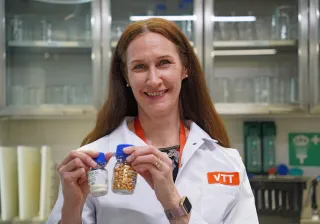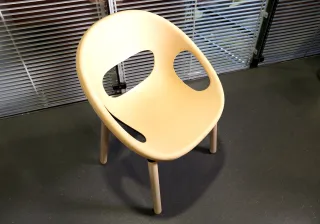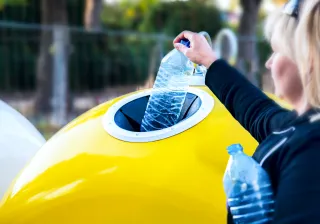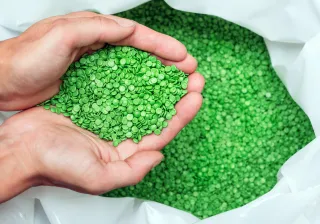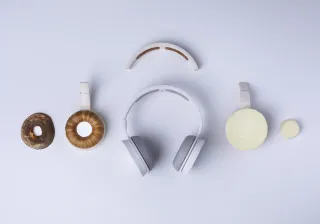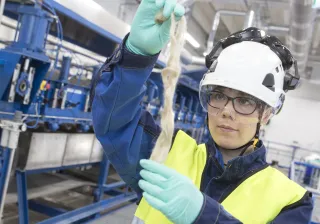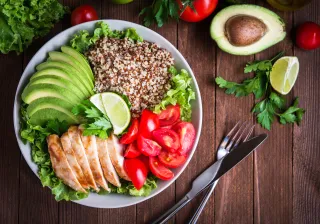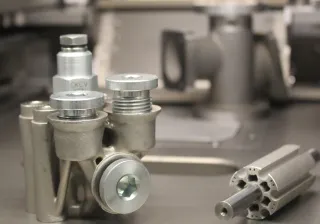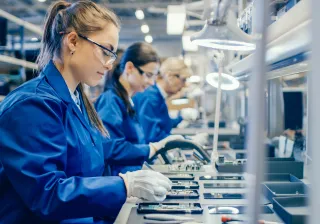Consumers and companies alike are interested in environmentally friendly and recyclable packaging made from renewable materials, such as wood. Using cellulose and fatty acids, two completely renewable substances, VTT has developed a material that can be used in food packaging similarly to plastic due to its thermoformable properties. The development work is currently underway at VTT in cooperation with Arla Foods, Paulig and Wipak.
The final application of the Thermocell material developed by VTT will depend on how companies want to use it. It is suitable for many purposes for which fossil-based plastics are currently being used. Thermoplastic cellulose, i.e. cellulose that can be moulded using heat, can be processed in conventional plastic treatment processes. Like plastic, the material can be refined into packaging films and bulk commodities.
All potential uses of the material are not yet known. The next step in the development process is to produce hundreds of kilos of the material and process it into various packaging prototypes with companies. This is done to verify the functionality of the material in industrial processes and in real application conditions.
The plastic-like, thermoplastic cellulose material is one component of the packaging material by VTT that reached the top spot in the 2018 Ellen MacArthur Foundation competition. An essential part of commercialising that packaging material concept is bringing thermoplastic cellulose into industrial production.
Cellulose is the most abundant natural polymer. Due to its hydrogen bonds, cellulose has formed a resistant microfibril network, making it strong. In order to achieve thermoplasticity, cellulose must be tailored without significantly affecting its natural properties. In the technology developed by VTT, the molar mass of cellulose is first adjusted in a controlled manner, followed by chemical treatment, which eventually produces a thermoplastic material.
Key industrial partners
Arla Foods, Paulig and Wipak have a long history and extensive know-how in the development of innovative and sustainable materials.
With this project Arla Foods will take another step towards identifying more sustainable packaging solutions for the future of dairy products.
Paulig Group invests strongly in packaging development and has introduced e.g. fibre-based packages with a lower carbon footprint into the market. The food and beverage company was also the first in the world to introduce renewable raw materials to vacuum coffee packages.
Wipak is well-known for its innovation capability in sustainable products and has recently declared an intention to become carbon neutral within five years. The company is also the only one in the packaging industry to date to have introduced a holistic carbon assessment programme of all its operations.
VTT and corporate co-operation can help to accelerate the launch of the material into the market. The project concludes in May 2021.




